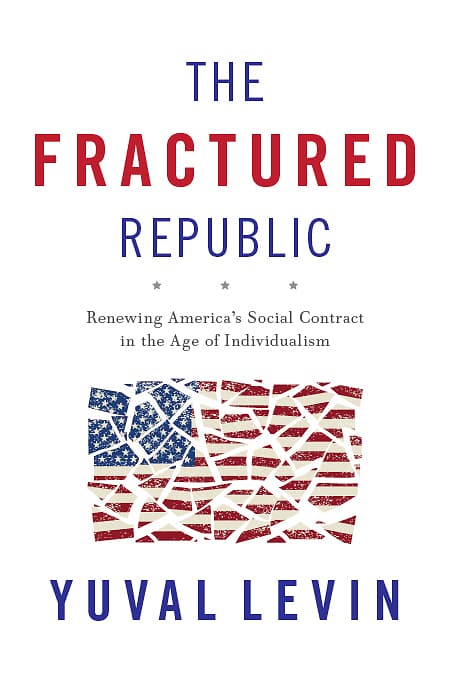
Book Review Summary: The Fractured Republic: Renewing America's Social Contract in the Age of Individualism
Introduction
"The Fractured Republic: Renewing America's Social Contract in the Age of Individualism" by Yuval Levin explores the challenges facing the United States in the 21st century. The book examines the growing frustration and anxiety among Americans, as well as the dysfunctions of their fragmented national life. Levin argues that both the Left and the Right are trapped in nostalgia, unable to adapt to the new realities of a society that is becoming increasingly individualistic. He proposes a modernizing politics that avoids radical individualism and centralizing statism, and instead revives the middle layers of society. In this article, we will delve into the book's analysis of views, reasons for recommendation, and reasons for not recommending it.
Analysis of Views
- The Problem of Nostalgia: Levin identifies nostalgia as a major obstacle in American politics. Both the Left and the Right are trapped in their respective golden ages, unable to recognize the changes that have occurred in society. Levin argues that this nostalgia prevents them from addressing the challenges of the 21st century.
- The Fragmentation of Society: Levin highlights the fragmentation of institutions in American society, from economics and politics to culture and education. This fragmentation has resulted in dwindling solidarity, cohesion, and social order, leaving Americans with more choices but less security and stability.
- The Need for Modernizing Politics: Levin advocates for a modernizing politics that revives the middle layers of society. He suggests that by focusing on families, communities, schools, churches, charities, associations, local governments, and markets, we can achieve tailored solutions to address the challenges we face.
- The Importance of Subsidiarity: Levin emphasizes the concept of subsidiarity, which holds that decisions should be made at the lowest possible level of government or society. He argues that subsidiarity is essential to rebuilding a sense of community and enabling an American revival.
- The Role of Mediating Institutions: Levin highlights the importance of mediating institutions such as families, religious communities, workplaces, and schools in shaping individuals and fostering social cohesion. He contends that these institutions have been hollowed out from both the top (by a powerful central government) and the bottom (by individualism), leaving a void that needs to be filled.
Reasons for Recommendation
- Clarity and Insight: Readers appreciate Levin's clear prose and his ability to articulate complex ideas in a concise manner. His analysis provides valuable insights into the challenges facing American society and offers a thoughtful perspective on how to address them.
- Balanced Perspective: Levin's book offers a balanced perspective that acknowledges both the strengths and weaknesses of American society. By recognizing the limitations of both the Left and the Right, he provides a nuanced understanding of the political landscape and offers a path forward for renewal.
- Practical Solutions: While some readers find Levin's prescriptions too detached or abstract, others appreciate his focus on practical solutions. His emphasis on subsidiarity and mediating institutions resonates with many readers who are seeking ways to rebuild community and address societal challenges without resorting to extremes.
Reasons for Not Recommendation
- Lack of Specificity: Some readers feel that Levin's book lacks specific policies or detailed work plans to implement his ideas. They find his focus on high-level concepts and abstract theories insufficient to provide concrete guidance for change.
- Repetitive Style: A few readers note that Levin's writing style can be repetitive at times, leading to a sense of redundancy. They feel that he could have condensed his arguments or provided more concise summaries to avoid this issue.
Conclusion
"The Fractured Republic: Renewing America's Social Contract in the Age of Individualism" by Yuval Levin offers a thoughtful analysis of the challenges facing American society in the 21st century. Levin's book provides valuable insights into the problems caused by nostalgia and fragmentation, and offers practical solutions through modernizing politics and reviving mediating institutions. While some readers appreciate Levin's clear prose and balanced perspective, others find his lack of specificity and repetitive style limiting. Overall, "The Fractured Republic" is recommended for those seeking a nuanced understanding of American politics and a path forward for renewal in a rapidly changing world.